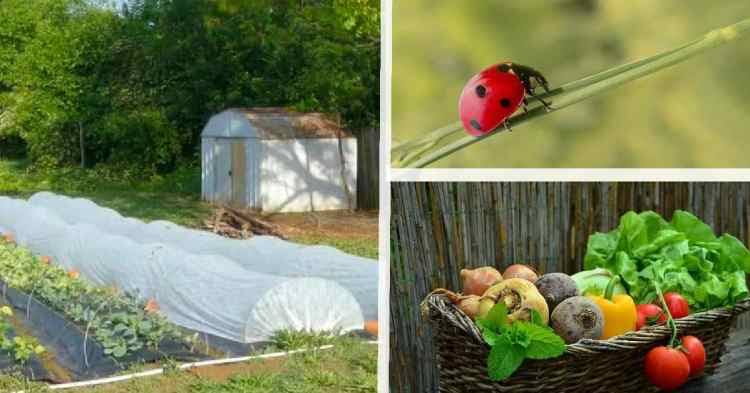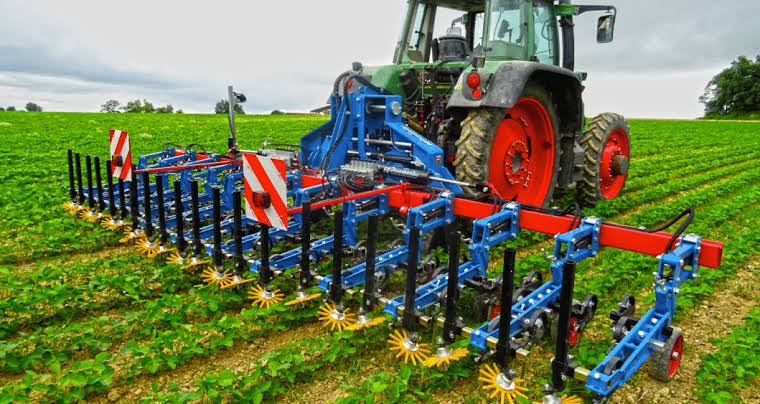Crop pests are species of organisms that reduce the availability, quality or value of crop plants. The pests include insects, nematodes, weeds, pathogens and vertebrates. To reduce pest numbers to an acceptable threshold in organic systems, measures other than chemical usage is adopted to achieve control such as biological and cultural measures.
Different pest could have control measures peculiar to them alone or applicable to another pest. e.g. insect pest and disease control can be achieved through crop rotation and adoption of resistant varieties.
Weed and vertebrae pest control could be achieved basically through mechanical means. Management of crop pest in organic systems of crop production ensures that whatever strategy is adopted, no harm is caused to the environment.
Read Also: All You Need To Know About Flowers Identification
Insect Pest Control in Organic Crop Production

Insect pest control inorganic systems are achieved primarily through biological means where predators or parasites of the pest species are introduced. Other strategies employed include crop rotation and selection of pest resistant crop varieties.
Mechanical control measures can be adopted through hand picking of insects or trapping (light traps, sticky traps, sweep nets, pitfall traps etc.) is carried out. Where there is serious infestation, pheromones might be used to disturb mating cycles
Nematode Control in Organic Crop Production
Nematodes in organic crop production systems can be controlled through sanitation and soil solarization (increasing soil temperatures). Usage of nematode free plants is also essential to avoid nematode problems.
Plants and soils from infested sites should not be transferred to healthy sites. Biological control can also be employed where plant parasitic nematodes are controlled using other organisms such as bacteria, fungi, predatory nematodes or other vertebrates.
Companion crops with nematicidal root exudates can be used alongside susceptible crops. Nematodes could also be controlled by flooding as oxygen supply is cut off, the nematodes die of oxygen starvation. The use of organic mulches and crop rotation could also serve as a control measure for nematodes.
Read Also: All You Need To Know About Mow Lawn Flowers
Weed Control in Organic Crop Production

The primary weed control measures in organic systems are achieved through cultural and mechanical methods of control.
Cultural control measures include;
1. Crop rotation to disrupt weed cycles
2. Use of mulches and cover crops to smother or suppress weeds
3. Timely tillage
4. Use of trap crops to reduce weed population
Intercropping with legumes which can serve as cover crops to smother weeds
Mechanical weed control;
Mechanical weed control involves tillage of soil. Pre-plant tillage such as plowing, disking and ridging.
These tillage practices can help reduce the rate and spread of certain perennial weeds, kill emerged weeds seedlings and bury weeds/weed seeds below the germination zone.
Mowing of weeds helps weed control by preventing weed seed production and mowing can kill or suppress weeds.
Vertebrate Control in Organic Crop Production
Vertebrate pest include birds, mammals, reptiles etc that cause damage to agricultural crops. Control measures include;
1. Using scaring devices and exclusion nets for birds
2. Baiting and trapping of the animal pest
3. Exclusion fencing as well as adoption of good animal husbandry
4. Habitat manipulation
5. Environmental sanitation by keeping the area trash and debris free as well as removal of overgrown vegetation
6. Building pest proof structures
Pathogen Control in Organic Crop Production
In organic systems, pathogens are basically controlled through cultural means by
1. Crop rotation
2. Planting resistant varieties
3. Manipulating time of planting
4. Alter environment of host to suppress infestation
In conclusion, pest control in organic crop production systems ensure that no chemical is used as it is priority to maintain a healthy environment.
The major pest in this system are; insect, pathogens, vertebrates, pathogens etc. and these can be controlled using different measures some of which include: crop rotation, sanitation, soil solarization, mechanical and biological control measures etc.
Crop pests are species of organisms that reduce the availability, quality or value of crop plants. The pests include insects, nematodes, weeds, pathogens and vertebrates.
Insect pest control inorganic systems are achieved primarily through biological means where predators or parasites of the pest species are introduced, nematodes can be controlled through sanitation and soil solarization (increasing soil temperatures), weed control is achieved through mechanical methods as well as good cultural practices, vertebrates using scaring devices and exclusion nets for birds and pathogens through cultural means e.g. crop rotation, use of resistant varieties etc.
